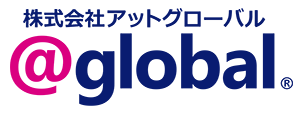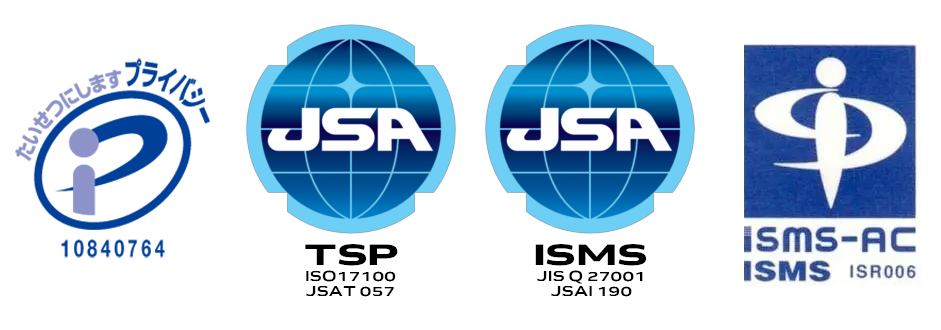Seminar Case in a Faculty of Business with Diverse Students
CQ Seminar for Global Human Resource Development
— Case Study: Seminar in a Faculty of Business with Diverse Students —
In today’s globalized society, intercultural communication skills are essential for students to succeed in their future careers. AtGlobal, Ltd. collaborates with universities to deliver CQ Business® seminars, broadening students’ perspectives and enhancing their CQ (Cultural Intelligence). In the summer of 2025, AtGlobal, Ltd. conducted a seminar for students—including international students—in faculties such as Business Administration and International Cultural Studies.
※CQ Business® is a registered trademark of AtGlobal, Ltd.
Overview
Theme
CQ (Cultural Intelligence) Seminar: Basic Concepts
Participants
98 undergraduate students enrolled in the Faculty of Business Administration
Japanese students: 60
International students: 38 (China, Taiwan, Vietnam, Korea, Nepal, Indonesia)
Objective
To understand diversity, recognize one’s own CQ, and develop practical intercultural communication skills.
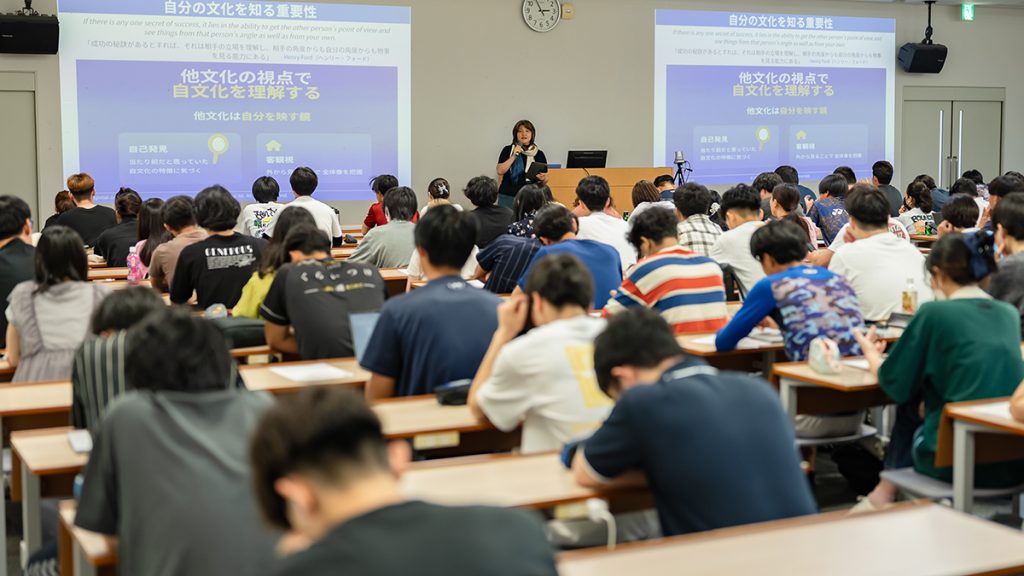
Program
This seminar utilized Microsoft Forms to collect participant responses in real time. Activities were designed around their answers regarding values, habits, and communication styles, enabling students to reflect deeply on their own cultural backgrounds. Through this process, they identified their behavior patterns and gained a concrete understanding of both differences and commonalities with other cultures.
Cultivating an Intercultural Mindset
Intercultural competence requires more than knowledge—it demands the right mindset. The seminar emphasized three key mindsets:
- Open-mindedness: Respecting diversity and approaching situations without stereotypes or prejudice
- Flexibility: Responding positively to uncertainty and adapting to circumstances
- Continuous learning: Embracing mistakes, learning from experience, and striving for growth
By developing these mindsets, participants can build trust across cultures and achieve smooth collaboration.
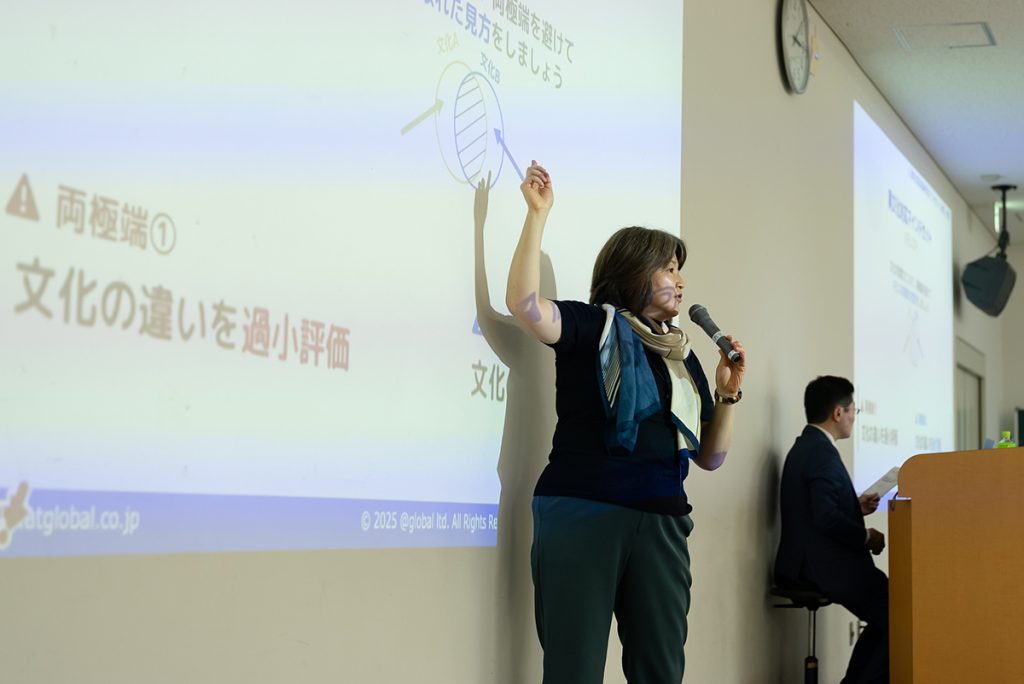
The seminar provided participants with practical knowledge to communicate effectively across cultures, focusing on:
- Differences between high-context and low-context cultures
- Characteristics of collectivism and individualism
- Cultural dimensions such as uncertainty avoidance
By mastering these concepts, students gained deeper insights into the behaviors and thought patterns of people from different backgrounds, helping prevent misunderstandings and conflicts while fostering effective communication.
Impact
The majority of participants expressed satisfaction and reported a deeper understanding of intercultural issues. They particularly valued the instructor’s real-world examples and the opportunity to reexamine their own culture through diverse perspectives. Many also noted new insights into non-verbal communication barriers.
Seminar Satisfaction
98%
Knowledge of Intercultural Competence
99%
Voice
Here are comments from participants
I realized it’s not just about knowing cultural differences, but also about how to achieve balanced intercultural exchange. It offered me many new perspectives. Going forward, I want to keep cultural differences in mind when interacting with people.
Japanese student
The most valuable part of the seminar was encountering perspectives I wouldn’t have thought of on my own. Through the instructor’s examples and exchanges with others, I gained not only knowledge but also practical understanding.
Taiwanese student
Learning about the importance of intercultural understanding and diversity with concrete examples was very educational. With many group activities, it was a great opportunity to hear how other students think. I’d love to join similar seminars in the future.
Nepali student
The seminar went beyond theory, showing us—using clear materials—what we should actually do in real life. That was the most valuable part for me.
Japanese student
I believe intercultural competence isn’t learned from theory alone but developed through real encounters. Knowing your own culture and respecting others leads to success in international and multicultural environments.
Vietnamese student
The seminar was really engaging. Submitting opinions via QR codes was fun. ‘Diversity is an opportunity’—what a great phrase!
Japanese student
CQ Seminar
AtGlobal, Ltd.’s CQ Business® seminars are designed flexibly by experienced instructors according to the specific needs and context of your company or university. Beyond learning about cultural differences, participants explore how to respond effectively, fostering real behavioral and mindset changes. The ultimate aim is to raise CQ (Cultural Intelligence), an indispensable quality for global talent.
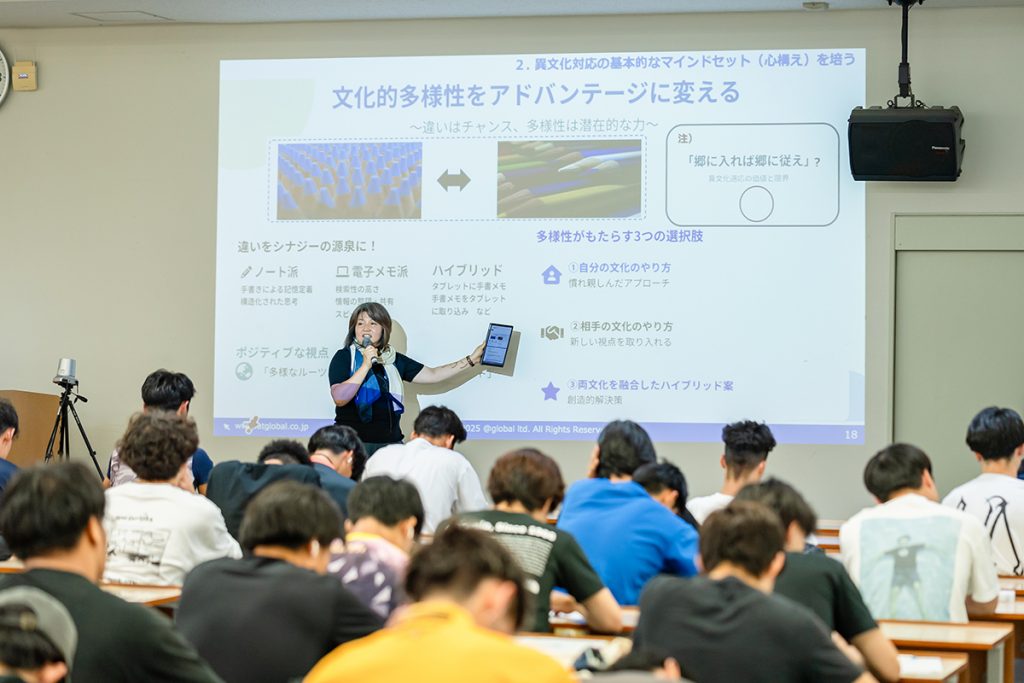
Benefits of Enhancing CQ
For Companies
- Strengthen competitiveness in global markets: Avoid cultural misunderstandings and maximize outcomes in international business and negotiations.
- Unlock global talent potential: Smooth communication enables foreign employees to contribute their expertise and perspectives, strengthening the organization.
- Boost team collaboration and productivity: Building trust through intercultural understanding facilitates effective cooperation among multinational, cross-functional members.
For Students & Individuals
- Develop true “global competence”: Thrive in study abroad, overseas employment, and international environments while minimizing stress.
- Reduce interpersonal stress: Gain deeper insight into “why communication fails” and respond constructively.
- Foster personal growth: Learning about other cultures helps individuals see themselves in perspective and grow into more flexible, broad-minded professionals.
Toward the Development of Global Talent
AtGlobal, Ltd. provides customized global human resource development programs using CQ, tailored to the needs of each university or company.
Enhancing CQ directly improves team performance, leadership, and organizational adaptability.
With expert-led CQ assessments and training programs,
take your institution’s intercultural communication skills to the next level.
Start with a free consultation—contact us today.
